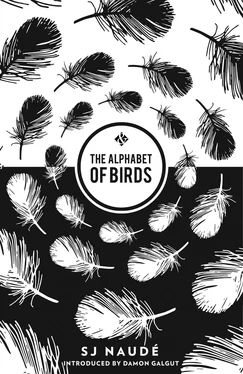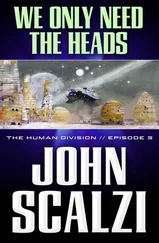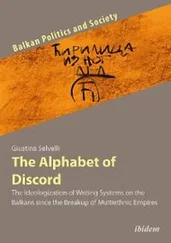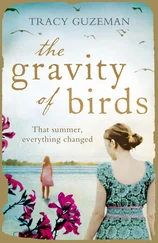‘ Engeltjie, engeltjie, vlieg dadelik voort!
Jou vader is dood, jou moeder is dood
En jou kindertjies eet droë brood. ’
‘Mom, the bitch is telling me stuff in that language!’ he screeched, and let out a grating moan.
‘What so amazed me about Cayle,’ Zelda says over dry toast, ‘was how such an incredibly beautiful man could be so incredibly cruel.’
Her hair hangs in slightly oily strings around her ears. She continues in monotone.
‘You know, sometimes I consider simply surrendering myself to him, just letting him do what he wants. Getting it all over with.’
Zelda looks as if she cannot carry her own head, as if she is on the verge of falling forward and splitting open her chin on the table. Here she is sitting, in the artificial air, wasting away, Ondien thinks, the sister who once was my friend, with no one but this berserk child for company. Nothing here indicates her presence. Not a picture or a photo that reveals a thing. Her husband or the child will come and kill her in her bed and, once someone has thrown out her clothes and vacuumed a few loose hairs from the carpets, no one will know who lived here.
‘This is not a house,’ Ondien says. She looks around them. ‘It is a sketch, an estate agent’s hasty mock-up of how someone might live in such a place.’
Cornelius
Cornelius arrives from the airport, just back from Luxembourg. He looks smaller and tougher than she remembers him. His suit, once no doubt meticulously cut to size on Savile Row or in Hong Kong, is now somewhat loose-fitting. There is a new wiriness about him, his muscles small and dense from working out in the hotel gymnasiums of the world.
Her plane had landed earlier in the morning. The concierge let her into Cornelius’s flat in Kensington, where the Romanian cleaning woman showed her to her room. She took the key to the private gardens in the Georgian square and sat there on an iron bench, in the pale light and silence. Except for a squirrel and a woman pushing a designer pram in the opposite corner, nothing moved.
Cornelius looks bashful. Perhaps the unexpected intimacy of their phone conversation a week or two earlier, perhaps the fact that they hardly recognise each other.
‘You look different,’ he says, and looks her fleetingly in the eye.
He does not elaborate, but she can imagine: bony, colourless, rhythmless. No longer the bright-eyed and bushy-tailed white girl obsessed with things ethnic.
‘I can cook us a pasta,’ she says.
He smiles. ‘You will find nada in my cupboards, I can hardly find my own kitchen.’
They dine in Mayfair, in a grandiose eighteenth-century townhouse with art installations and a DJ spinning lounge music with electronic improvisations. Cornelius announces himself at the door in his traceless London accent. They order immediately.
Cornelius works his way through the delicate portions of an eight-course tasting menu: cool complex soups in fine glasses, shards of monkfish on vegetable flowers, medallions of lamb, lightly scorched scallops, cylindrical stacks of crab meat, dabs, mousses and foams.
They talk about Zelda. Ondien shakes her head, looks at the video installation projected on one of the restaurant walls: the image of a man going up in flames. There is an expression of bliss on the man’s face.
‘There is almost nothing left of our sister,’ she says.
‘Yes, I phoned her recently. Difficult to talk to her, she’s lost much of her Afrikaans.’
Conversation, she thinks: at the best of times a joint game by the speaker and listener against the forces of confusion. He shifts the conversation away. They talk about Johannesburg, the recession, the economic cataclysm in Britain. On the wall next to them, the man keeps burning. Gradually the man disappears; only flames remain.
Ondien looks at the smooth Londoner in front of her, an ideal specimen of the borderless world’s financial elite. She has difficulty matching this image with that of the semi-incoherent man to whom she spoke on the phone a week or two ago. But here he is. With his aura of a life beyond national identity. It is all about art, she thinks, in his world. The art, obviously, of financial alchemy. The art of conversations with neutral, smooth surfaces and deeply embedded codes. The art of consumption in the luxury markets of the most sophisticated metropoles. Contemporary art as investment market, edible art in the most sought-after restaurants, the art of charm and seduction. The art of power.
Another video installation is playing silently on the wall behind Cornelius. Snow falls from the ceiling and morphs into leaves. The leaves gather and change into a young woman on a penny farthing. The penny farthing changes into a spinning wheel, the young woman becomes as old as time in front of one’s eyes and makes the wheel spin. A strong wind blows backwards and the woman gradually dissolves in the wind. She changes into leaves again, which change back into snow and disappear towards the ceiling. A few notes rise up inside Ondien, like in her student composer days. A short phrase. Strings, a texture. She holds her breath, waits. Cornelius quickly looks around them. To gauge the effect on the other guests of her presumably odd facial expression, she imagines. But she does not care. She closes her eyes, tries to develop the motif, or at least hold on to it, but it disappears.
‘What is wrong?’
‘Nothing,’ she says.
Paper-thin sheets of caramelised sugar are balancing on Cornelius’s basil ice cream. He orders coffee. His skin looks cool and dry. There is a fleetingness about him, a swift alertness. She cannot place it; it is new. The world is still his oyster, but keeping his balance, preventing his feet from slipping from under him, apparently now requires more artful magic than ever before.
She realises a blunt approach is required to free him up, to hear what is really going on. The manner of Free State farm kids shooting the breeze on a riverbank, getting something off their chest.
She sits back. ‘So, what’s biting you, Cornelius?’
He looks straight at her and she takes fright. A shocking, fiery vulnerability. He signals for the waiter. They will take their coffee in another room.
The waiter, white linen napkin over the forearm, leads them up the stairs to the top floor. The Library , it says in flickering neon on the wooden panelling. They sink into deep purple couches in a room filled with psychedelic props from the 1970s juxtaposed with elements from the original library. Against the walls on two sides are rows of lava lamps; a third wall carries shelves with eighteenth-century manuscripts.
‘They’re going to let me go,’ he says.
She nods slowly. ‘I’m not too surprised,’ she says. ‘The economic realities …’
‘That’s not it …’
‘An opportunity, perhaps, Cornelius, to break out? Perhaps you can now escape the anaemia, do something quite new …?’
‘What else can I do, Ondien? I spend my days in conference rooms, between glass sheets. Calculations, negotiations. Finely calibrated conversations, the painful formulation of sentences that shift money around invisibly. The more abstract, the better. That is my life. Just that. And don’t think I can retire. The recession has taken its toll. My investments are buggered.’
There are chocolates in a little wooden bowl between them, handmade with cocoa from Borneo and flavoured with truffle oil, lavender and saffron. Cornelius stirs cream into his coffee. He puts down the teaspoon and his mood changes abruptly. He softens; something floating but intense comes over him.
‘It’s a liberation of sorts, I guess, or ought to be. I should tell you. Something has changed over the last few months. First it started reporting itself quietly, like a child tugging at the sleeve. You know in my heyday I had more girlfriends — affairs, shags, whatever — than I could count. Pretty girls, Chelsea or Kensington girls from private schools, an asset on a banker’s arm. A kind of transaction in itself, of course; they take their pound of flesh, such girls. But then, for a long time, I had zero need for relationships. Dedicated myself with monomania — or, perhaps,’ he smiles, ‘monogamy — to my job. But something kept gnawing at the edges. Something was building up. One evening in a hotel, I can’t recall, Los Angeles or Tokyo or somewhere, after a day of aggressive, gruelling meetings, I started reading a little book. Someone left it behind in the room. Thomas de Quincey’s Confessions of an English Opium Eater . A floodwave hit me from those pages. Something like a swarm of bats. All the things that I had never allowed to break through. Desire, yearning, loss. I was facing myself. De Quincey wrote about his “constitutional determination to reverie”. In a flash it occurred to me, that’s what I’m staring in the eye: the neglect of my own urge to swoon, the refusal to acknowledge how deeply dream-fucked I am. I suddenly experienced the most intense regret — no, grief — over the years of self-denial, the methods of my obsessive escape from rural South Africa. The years of dreamlessness.’
Читать дальше












